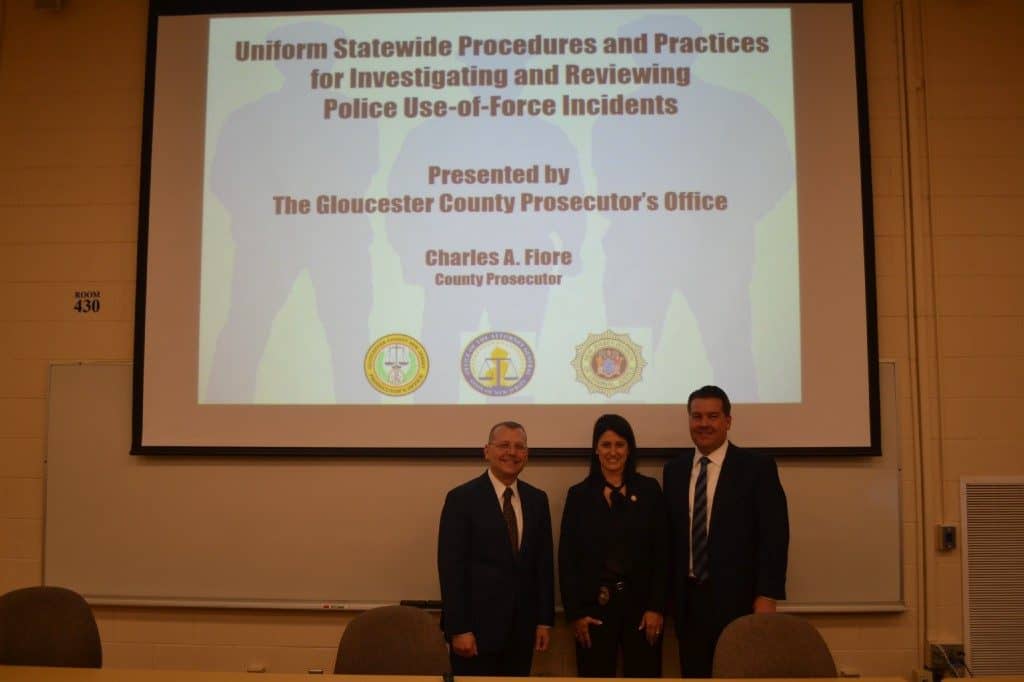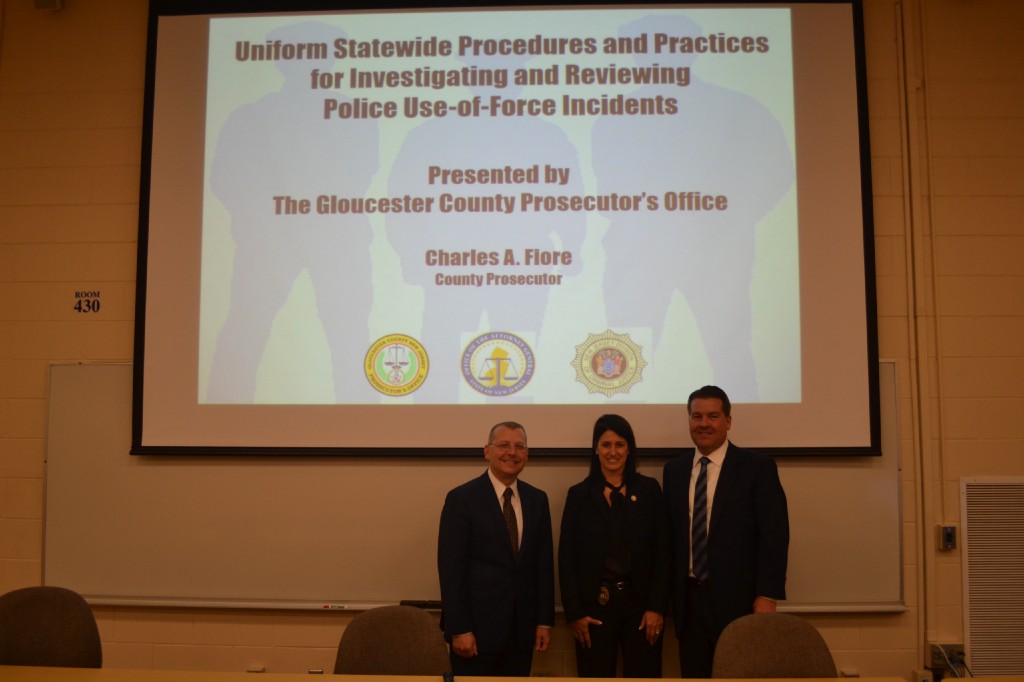
The May 15 town-hall style meeting was a product of the 21/21 Project set in place by Attorney General Gurbir S. Grewal

Transparency is a big buzzword in today’s law enforcement debates. The Gloucester County Prosecutor’s Office took another step toward transparency by holding a town-hall style meeting on officer-involved shootings on May 15 at Rowan College at Gloucester County.
The meeting was set up by the 21/21 Project, is a new initiative put in place by Attorney General Gurbir S. Grewal.
“Every day, law enforcement officers across New Jersey work closely with the members of the public to keep our streets safe,” Grewal said. “But that does not mean we cannot do better.” The goal of the “21/21 Project” is “encouraging dialogue on critical issues, and building relationships of trust that will continue after these meetings are adjourned.”
Last Tuesday’s meeting was hosted by Gloucester County Prosecutor’s Office First Assistant Prosecutor Paul Colangelo, Sgt. Stacie Lick of the Special Investigations Unit, and Det. Bryn Wilden of the Special Investigations Unit of the Gloucester County Prosecutor’s Office.
The seven core principles of a police-involved shooting incident were discussed first. The principles are as follows:
1. Comprehensive, rigorous, impartial investigation. This is the effort and time an investigation of a police-shooting involves.
2. Integrity of ongoing investigation and rights of the accused. Confidentiality is key in this stage.
3. Mandatory review of all actual and potential conflicts of interest. Think about who is involved and whom they know.
4. Multi-tiered layers of independent review. This stage determines who reviews the investigation and when it will take place.
5. Uniformity and statewide investigation legal practice and grand-jury practice. These directives give rules to follow.
6. Transparency of the process through factual findings and appropriate junctures. This stage decides when and how much information can be released to the public.
7. Ongoing allegation study. This is the stage where the investigators reach out to the community.
Lick went on to stress the level of attention to detail required in an investigation. “Investigations take a while. There is a lot of information that you’re gathering and a lot of information to review,” Lick said. “You have to be extremely thorough and make sure you do everything correctly.”
Lick went on to describe what it’s like to investigate a case. Investigators review witnesses, both officers and people on the scene. She stressed this can be time consuming due to scheduling conflicts and, in some cases, the public not wanting to cooperate with the investigation. She also mentioned they will review video surveillance, whether it’s from a street camera or the body camera on an officer.
The investigation doesn’t stop there. Lick rattled off a handful of other things that are taken into consideration.
“We gather medical records, we meet with the doctors who may have treated the individual, we meet with the EMTs who may have transported the individual,” Lick said. “We collect clothes, weapons, magazines, casings, etc.”
She ended her segment by saying they cannot share information with witnesses or officers. “They can’t know anything that’s going on in the investigation because it may affect their statement and contaminate their record,” she said.
Wilden addressed the room on when body-camera footage can be released.
“The attorney general has deemed two things need to take place before we release body-camera footage,” Wilden said. “Those two things are the completion of a substantial portion of the investigation and a formal request by a member of the public or a member of the media for those records.”
The county prosecutor or the director of the Division of Criminal Justice determines the completeness of an investigation. They will determine when it is appropriate to release the body-camera footage.
Wilden added the body-camera footage can be kept confidential in the event of a subject using force against a police officer. A police officer can make that request as well, but the county prosecutor will deliberate the request.
For more information about the 21/21 Project and future seminars go to nj.gov/oag/2121 or call (609) 292–4925.









